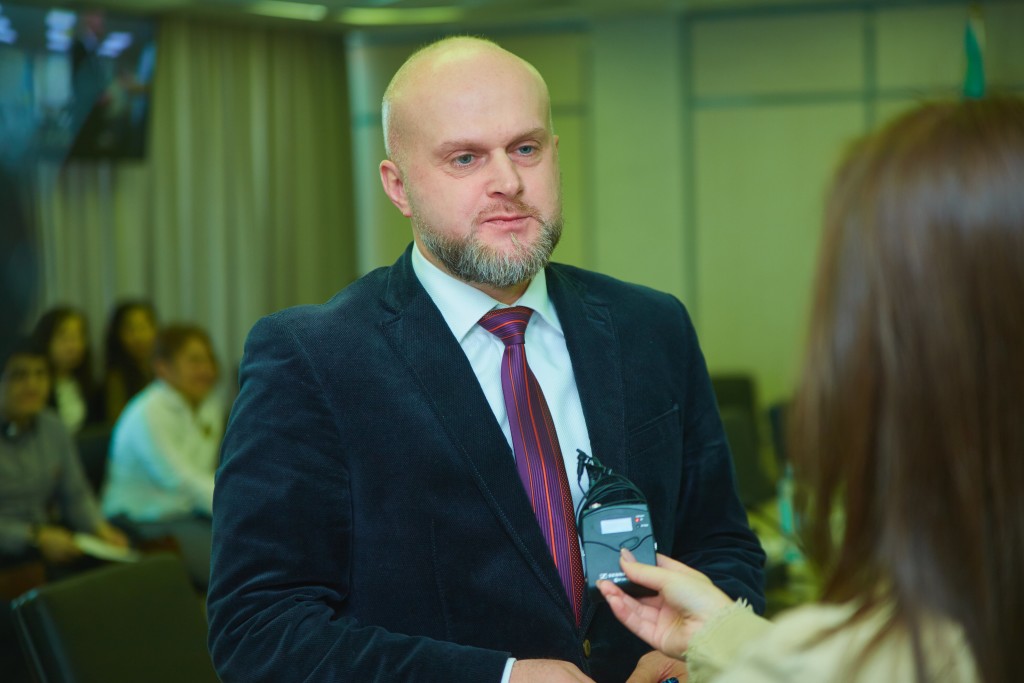ASTANA – Kazakhstan’s healthcare system is being reformed based on introducing compulsory health insurance and no modern country can offer a basic benefit package without a Health Technology Assessment (HTA), said Polish former Deputy Health Minister and strategic medical technologies consultant for Dentons Business Services EMEA Krzysztof Landa during a March 15 workshop in the capital.
“If the country introduces health insurance or coverage and begins to collect money from taxes or premiums, it needs to define a basic benefit package, so basically they [officials] have to explain to people what exactly people are paying for. In order to provide rational and transparent management of a basic benefit package, an HTA must be introduced. Otherwise, the process of defining benefits for people covered with insurance will be not transparent and rational. That will cause many issues for decision makers, since they may be accused of not being transparent or not using limited resources the best possible way. HTA helps decision makers to achieve the goal of transparency and rational use,” he told The Astana Times.
The workshop, “Health Technology Assessment in strategic healthcare management and policy development: national and regional decisions taking on the pharmaceutical listing and reimbursement,” gathered Kazakh experts on HTA and rational drug supply. The detailed study of international best practices has been attracting great practical interest, said the organisers.
HTA is the only tool that allows assessing the effectiveness of spending funds and achieving their efficient use, said Landa. It is an integrated interdisciplinary approach used to analyse health policy based on the long-term consequences of applying existing or new technologies for medical care. HTA is conducted to justify decisions and formulate health policy based on objective information. The approach evaluates technologies such as medicines, medical equipment, procedures and organisational structures within the healthcare system. HTA involves choosing the best available treatment methods that ensure maximum health benefits for the population at a given cost level.
The method allows specialists to determine which products are more effective and economically profitable, especially in cases when choosing between local and foreign producers. According to experts, the state seeks to use its funds more rationally and gives preference to Kazakh producers. If the assessment shows an expensive foreign medicine is more effective, however, the state gives it preference.
“The knowledge of the HTA system and its functionality will be important for future decision-making, which in the future will result in using the technologies that are the most efficient, safe and economically beneficial and effective for this country. It will result in rational use of healthcare resources,” said Centre for Rational Use of Medicines head Gulzira Zhusupova at the event.
Using HTA in Kazakhstan is a recent development, as it was launched in 2009. Since 2011, the World Bank has trained a number of HTA experts and the list of the country’s high-tech medical services was formed based on the assessment.
The most important thing is that Kazakhstan is moving towards evidence-based healthcare, said Landa. Talking about Poland’s experience, he noted the country has compulsory medical insurance and solidarity rule, which is actually a coverage system.
“So, people pay money in the way of taxes and this money is then managed by the National Health Fund, so we have a monopsony institution which is responsible for the delivery of goods and benefits from the basic benefits package, including drug reimbursement. All Polish citizens are entitled to the basic benefit package and they have health coverage,” he said.
Poland’s drug reimbursement programme was introduced in the 1970s. Today, some medicines are available for free and the majority of drugs on the reimbursement list can be purchased for a lump sum payment of 3.2 Polish zloty (US$0.96).
“Just like in Kazakhstan, emergency care was reimbursed from the beginning. There were probably always some benefits in Poland for people needing urgent care, but then this system was developed,” he added.
Landa thinks the best way to introduce compulsory medical insurance is learning from those nations where programmes have succeeded, such as Australia and Scotland.

